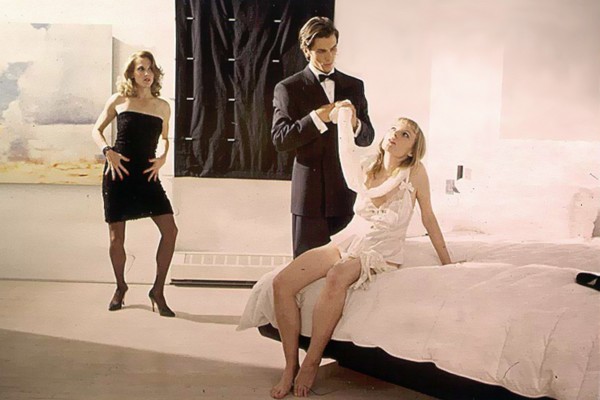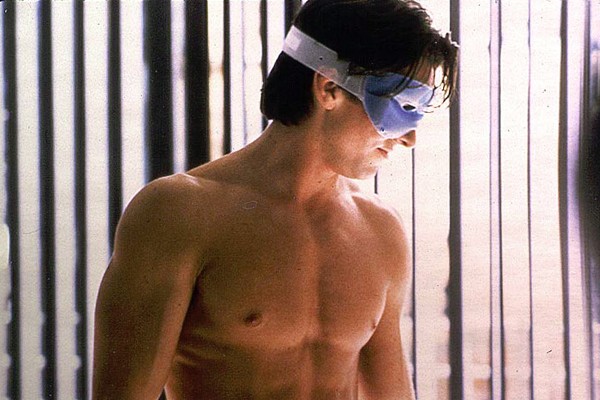

After nearly a decade, American Psycho, the controversial novel by Bret Easton Ellis, finally hits the screen. When the novel first came out, it was met with controversy. Critics called it pornographic and misogynistic. The film maintains some of the elements that critics hated about the book. In fact, it almost received an NC-17 rating by the MPAA. Oddly enough, the rating was not for the violence, but for the sexuality. The filmmakers defended the sex (a threesome) as mechanical and completely unerotic, devoid of any true emotion. American Psycho chronicled the exploits of Patrick Bateman, an investment banker cum serial killer in the hyper-materialistic eighties. Bateman's character is also devoid of almost all emotion, aside from vanity, greed, and murder. Easton and director Mary Harron (I Shot Andy Warhol) claim that American Psycho is a dark satire on the eighties, but it mainly feels as emotionless as the sex and Bateman.
The few points of satire present are darkly funny. Everyone in Bateman's (Christian Bale, Velvet Goldmine, A Midsummer Night's Dream) world is as shallow as he is. No one can remember who anyone else is, so everyone is always mistaking people for other people. They jockey to eat at the finest restaurant and wear the chicest designer clothes. Bateman and his coworkers spend an exorbitant amount of time comparing their new business cards, debating the merits of bone, eggshell, and off-white. His morning routine involves a myriad of shampoos, conditioners, and moisturizers, all designed to keep his skin in perfect condition. Everything is about how much money one can make. Bateman hates his job, but stays because everyone else is doing it. His only method of venting is to satisfy his homicidal tendencies. At night, Bateman's urges overpower him, and he begins to kill uncontrollably. The funniest parts of the movie occur during the murders. Harron leaves most of the violence off-screen (the amount of actual violence in the movie is surprisingly small), leaving the camera on Bateman. He waxes poetic on the merits of Huey Lewis & the News (who removed his song Hip to be Square from the soundtrack), Phil Collins, and Whitney Houston as he kills his victims. The contrast between his actions and the words of devotion coming out of his mouth are as satirical as the movie gets.
Bateman's behavior changes as his tendencies arise more often. Bale delivers all his lines in a strange monotone, always staring intensely. His delivery matches Bateman's personality or lack thereof. Bateman murders one of his coworkers who mistook him for someone else. He then proceeds to cover up the crime, but when a detective (Willem Dafoe, Affliction, eXistenZ) begins focusing intently on Bateman, he becomes paranoid. It is possibly the paranoia that leads him to commit murders that become more numerous and gruesome. For most of the movie, Batemen broods and tries to deal with his urges, which become increasingly stranger. There really is no substance to the story by Easton, Harron, and Guinevere Turner (Dogma, Treasure Island). Aside from occasional flashes of brilliance, the plot plods along, meandering everywhere until the ending. The end of the movie is bizarre and open to interpretation, and not worth the wait. Even with all of its pontificating about materialism, American Psycho pales in comparison to Fight Club, a similarly themed movie that successfully gets its message across while remaining edgy and unique.